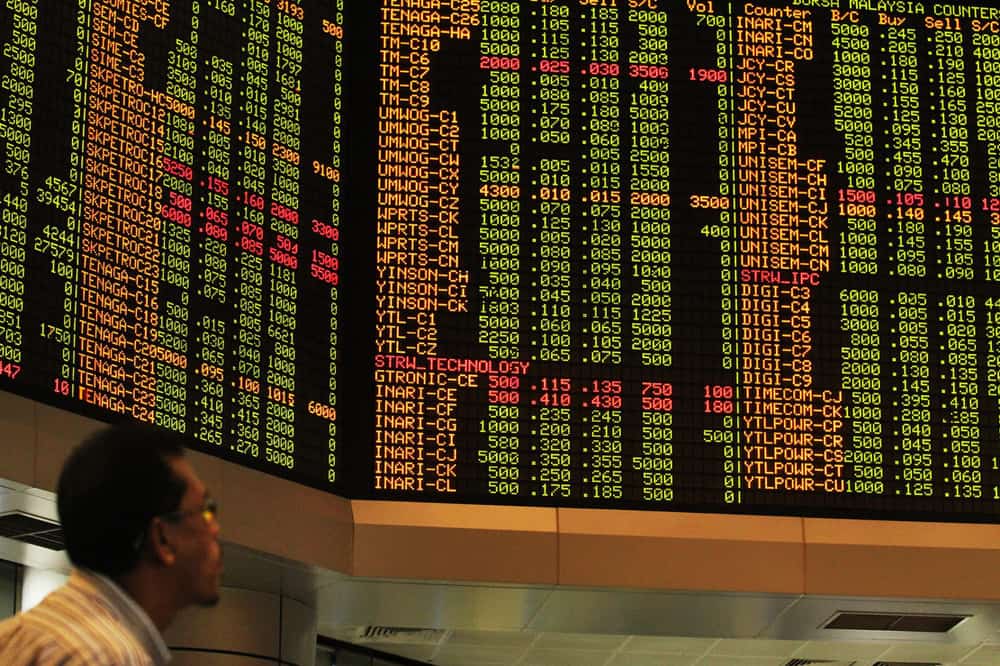8% Islamic sector growth drives expansion of Malaysia’s capital market in 2019
Malaysia’s overall capital market grew by 3% to 3.2 trillion ringgit ($735.38 billion) in 2019 largely driven by an 8% expansion of the Islamic sector, regulator the Securities Commission said on Thursday (Apr 16).
Malaysia’s Islamic capital market grew 8.23% to 2.036 trillion ringgit ($467.96 billion) in 2019 from 1.881 trillion ringgit in 2018, according to data from the SC’s annual report.
This growth resulted in a larger Islamic capital market share of 63.57% last year versus 60.55% in 2018.
Other progress in Malaysia’s Islamic capital market in 2019 includes the revision of the Sustainable and Responsible Investment (SRI) Sukuk framework that was first introduced in 2014. Key revisions were made to enhance disclosure standards and further align requirements with internationally-accepted principles and best practices.
SECURITIES: UP
Shariah-compliant securities is the biggest asset class, comprising 76.86%, or 714 out of 929, of the number of listed securities in 2019, up marginally from 75.3% in the previous year.
However, Shariah-compliant securities are smaller in market capitalization, accounting for 64.06% in 2019, equivalent to 1.097 trillion ringgit out of a total of 1.712 trillion ringgit.
This is up from 60.96% of total market capitalization in 2018, equivalent to 1.037 trillion ringgit out of 1.7 trillion ringgit.
SUKUK: UP
Government and corporate sukuk continue to dominate the bonds market, reaching 938.96 billion ringgit out of 1.49 trillion ringgit in bonds and sukuk outstanding in 2019. This represents 63.01% of total bonds and sukuk outstanding, up from 60.05% in 2018.
There was a substantial growth of government and corporate sukuk issued in 2019 even as total bonds and sukuk issued dropped.
235.2 billion ringgit in government and corporate sukuk were issued in 2019 compared to 199.9 billion ringgit in the previous year, a substantial growth of 17.66%.
However, total bonds and sukuk issued nudged down by 0.28% to 384.85 billion ringgit compared to 385.93 billion ringgit in 2018.
A notable outcome of 2019’s sukuk market was the four SRI sukuk issued for renewable energy projects. These totaled 1.282 billion ringgit. A cumulative total of 4.77 billion ringgit in SRI sukuk have been issued between 2015 and 2019.
AUM: UP
The pattern of growth continues in the fund management industry that reached 823.19 billion ringgit in 2019 from 743.58 billion ringgit the previous year.
Islamic AUM makes up a far smaller proportion of this asset class, at 21.93% last year from 21.36% in 2018. This is equal to 180.52 billion ringgit versus 158.83 billion ringgit in 2018, a rise of 13.66%.
The regulator says that the Islamic fund management sector saw “new and innovative” investment products launched in 2019, including Islamic ETF based on gold, SRI Islamic funds, and social and green sukuk.
There were a total of 23 full-fledged Islamic fund management companies in Malaysia in 2019.
UNIT TRUST FUNDS: UP
UTFs as a whole reached 685 billion ringgit in 2019 from 650 billion ringgit in 2018.
Islamic UTFs grew from 224 billion ringgit in 2018 to 236 billion ringgit last year.
The net asset value (NAV) of Islamic UTFs was only 107.32 billion ringgit in 2019, or 22.26% of the segment, up from 19.58% in 2018.
WHOLESALE FUNDS: DOWN
Wholesale funds are a small asset class in Malaysia’s capital market, making up 323 billion ringgit in 2019, up slightly from 307 billion ringgit in 2018.
However, Islamic wholesale funds dropped to 58 in 2019 from 76 in 2018.
The net asset value (NAV) of Islamic wholesale funds also took a dive, from 23.58 billion ringgit in 2018 to 12.33 billion ringgit last year.
As a result, the market share of Islamic wholesale funds’ NAV plunged from 36.30% in 2018 to 21.22% last year.
PRIVATE RETIREMENT SCHEMES: ALMOST FLAT
Private retirement schemes reached 57 in 2019, almost flat from the 56 in 2018.
Islamic PRS comprised 26 last year, also almost flat from 25 in 2018.
While the net asset value (NAV) of Islamic PRS increased from 0.82 billion ringgit in 2018 to 1.06 billion ringgit last year, its market share dropped slightly from 30.6% to 30.29%.
REAL ESTATE INVESTMENT TRUSTS: ALMOST FLAT
The number of REITs stayed at 18 as a whole, with 4 Islamic REITs in both 2018 and 2019.
The market capitalization of the 4 Islamic REITs nudged up from 17.19 billion ringgit in 2018 to 18.24 billion ringgit last year.
This almost flat growth in both the Islamic and conventional sectors is reflected in the market capitalization share of the Shariah-compliant segment: from 41.49% in 2018 to 41.62% in 2019.
EXCHANGE TRADED FUNDS: FLAT
The smallest asset class, ETFs, saw no growth in the Islamic segment that stayed put at 0.55 billion ringgit in market capitalization.
However, as the number of conventional ETFs increased from 4 to 9 while Islamic ETFs were flat at 6, the share of market capitalization of the Shariah-compliant segment dropped from 27.78% in 2018 to 25.7% last year.
DIGITAL
In 2019, Wahed Invest became Malaysia’s first licensed Shariah-compliant digital investment management company.
In all, 17 digital platforms were approved in 2019, taking the total tally to 33.
According to the Securities Commission, in 2019 equity crowdfunding and P2P financing platforms provided close to 706 million ringgit in alternative financing for 1,943 Malaysian micro, small and medium enterprises.
© SalaamGateway.com 2020 All Rights Reserved
